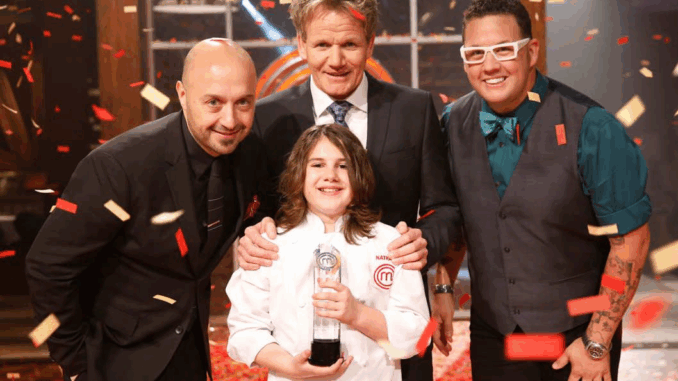
For years, Gordon Ramsay’s empire of food television — from Hell’s Kitchen to Kitchen Nightmares and MasterChef — has painted a picture of a fiery genius chef whose brutal honesty “pushes people to greatness.” But behind the flashing cameras, the carefully cut editing, and the legend of the angry perfectionist, there’s another story. One that former contestants and crew members whisper in private, a story of mental breakdowns, exhaustion, and the kind of pressure that can leave scars long after the applause fades.
“They Told Us We Were Lucky to Be There — But It Felt Like Prison”
One ex-contestant, who asked not to be named, described their time on Hell’s Kitchen like a psychological experiment:
“We weren’t just competing, we were trapped. They controlled when we slept, when we ate, what we said. By week two, people were cracking. Some of us cried in the bathroom because it was the only place without cameras.”
Producers allegedly kept contestants isolated from their families, limiting contact and ensuring the tension was at boiling point. “It was all part of the show,” the former contestant said. “But when you’re in it, you don’t feel like a TV star. You feel like you’re breaking.”
The Illusion of the “Ramsay Effect”
Viewers love the transformation arcs. Ramsay storms into a failing restaurant, throws out rotten food, screams at a lazy cook, and within a week, everything looks sparkling new. But some former staff insist those changes don’t last.
A line cook who once worked for a restaurant featured on Kitchen Nightmares claimed:
“The cameras leave, and so does the magic. We had no money to sustain the changes, no staff to keep up the pace. Six months later, we were worse off than before. The show didn’t save us. It just used us.”
Many restaurants that appeared on Ramsay’s shows ended up shutting down within a year. The “Ramsay effect,” they argue, was more about television drama than real-world survival.
“The Rage Was Real — But So Was the Performance”
For Ramsay, the angry chef persona became a global brand. But was it authentic? Crew members hint that while Ramsay’s temper was genuine, it was also heightened on demand.
One producer recalled:
“Sometimes he’d be calm, even encouraging. Then the cameras would roll, and he’d switch. He knew people loved his explosions. The insults weren’t always spontaneous — they were part of the script.”
That revelation reframes the public perception of Ramsay: was he truly the chef who pushed people to greatness, or the actor who performed anger to feed an empire?
The Toll on Contestants
For some, appearing on Ramsay’s shows wasn’t a life-changing opportunity — it was trauma. Several ex-participants have spoken about leaving the experience with depression, self-doubt, and, in extreme cases, PTSD-like symptoms.
One runner-up from MasterChef confessed in an interview years later:
“People think it’s just cooking. But we were under constant stress, filmed 18 hours a day, judged harshly, and then tossed aside once the season ended. After the show, no one called. You’re on your own.”
The idea of “making it big” after appearing on Ramsay’s shows, for many, was an illusion. Very few contestants built lasting culinary careers. Most quietly faded back into obscurity, carrying the weight of a public failure.
The Price of an Empire
Gordon Ramsay himself once admitted in an interview that television nearly consumed him:
“I was filming so many shows at once, I barely saw my family. I thought I could do it all, but I was burning out.”
If the empire took a toll on Ramsay, it was magnified tenfold for those below him — the contestants desperate for a chance, the restaurants clinging to survival, the crew tasked with keeping the machine running.
A Necessary Truth
This isn’t to say Ramsay is a villain. He is undeniably talented, fiercely driven, and has inspired millions. But the glossy picture on screen hides a harsher reality. For every success story, there are countless broken contestants, failed restaurants, and disillusioned dreamers left in the shadows.
The truth is simple: Gordon Ramsay’s shows made stars — but they also broke people long before the credits rolled.